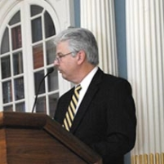The Rewards for Justice program (RFJ) authorizes the secretary of state to offer money for credible information that can be used to capture or kill international terrorists. The program may also provide protection and relocation services for the informant and his or her family.
(by Timothy W. Maier, Insight on the News)
(Associated Press)
Bush’s Terrorism Tip Program Unravels
(by Deep Harm, Daily Kos)
- Table of Contents
- Overview
- History
- What it Does
- Where Does the Money Go
- Controversies
- Suggested Reforms
- Comments
- Leave a comment



- Latest News
- D.C. Public Schools will Teach all Second-Graders to Ride a Bike
- New Rule in Germany Limits Sales of Sex-Themed E-Books to 10pm to 6am
- What Happened to the 6-Year-Old Tibetan Boy the Chinese Government Kidnapped 20 Years Ago?
- U.S. Ambassador to Turkey Photoshops his Hair Color to Mock Turkish Mayor
- Mystery Artist Calls Attention to Unfixed Potholes by Drawing Penises around Them
The Rewards for Justice program (RFJ) authorizes the secretary of state to offer money for credible information that can be used to capture or kill international terrorists. The program may also provide protection and relocation services for the informant and his or her family.
(by Timothy W. Maier, Insight on the News)
(Associated Press)
Bush’s Terrorism Tip Program Unravels
(by Deep Harm, Daily Kos)
Comments



- Latest News
- D.C. Public Schools will Teach all Second-Graders to Ride a Bike
- New Rule in Germany Limits Sales of Sex-Themed E-Books to 10pm to 6am
- What Happened to the 6-Year-Old Tibetan Boy the Chinese Government Kidnapped 20 Years Ago?
- U.S. Ambassador to Turkey Photoshops his Hair Color to Mock Turkish Mayor
- Mystery Artist Calls Attention to Unfixed Potholes by Drawing Penises around Them





Comments